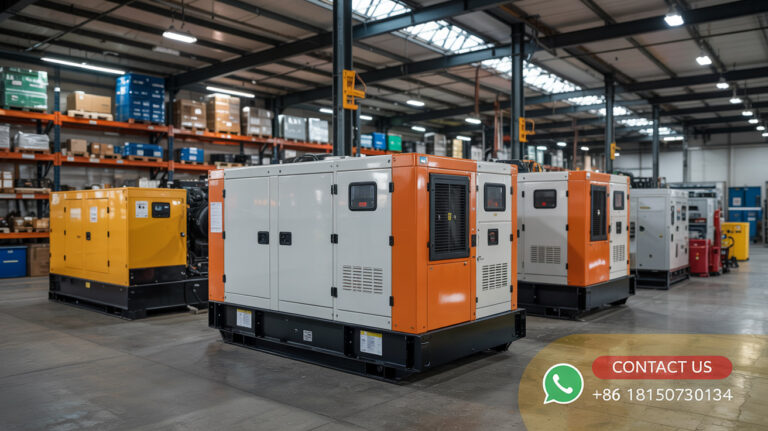A generator set (often called a genset) is a combination of an engine and an alternator that converts mechanical energy into electrical energy. It serves as a backup or primary power source in various applications, including residential, commercial, and industrial settings.
Key Components of a Generator Set
- Engine – Provides mechanical power by burning fuel (diesel, gasoline, natural gas, or biogas).
- Alternator – Converts mechanical energy into electrical energy.
- Fuel System – Stores and supplies fuel to the engine.
- Voltage Regulator – Maintains stable output voltage.
- Cooling & Exhaust Systems – Prevent overheating and expel combustion gases.
- Control Panel – Monitors and controls the generator’s operation.
Types of Generator Sets
- Diesel Generators – Reliable and fuel-efficient, commonly used in industries.
- Gasoline Generators – Suitable for small-scale or portable use.
- Natural Gas Generators – Eco-friendly, used in areas with gas supply.
- Biogas Generators – Utilize renewable energy sources.
- Portable Generators – Used for temporary power supply.
- Standby Generators – Automatically activate during power outages.
Applications of Generator Sets
- Emergency Power Backup – Hospitals, data centers, and homes.
- Construction Sites – Power tools and equipment.
- Mining & Oil Fields – Remote power supply.
- Events & Outdoor Activities – Temporary electricity.
Google Keywords for Generator Sets
To find more information about generator sets on Google, use these keywords:
- “What is a generator set?”
- “Diesel generator price and specifications”
- “Best standby generators for home”
- “How does a genset work?”
- “Portable generator vs inverter generator”
- “Industrial generator suppliers”
- “Generator maintenance tips”
- “Silent diesel generators for sale”
Generator sets are essential for ensuring uninterrupted power supply in various sectors. Choosing the right type depends on power requirements, fuel availability, and usage conditions.
